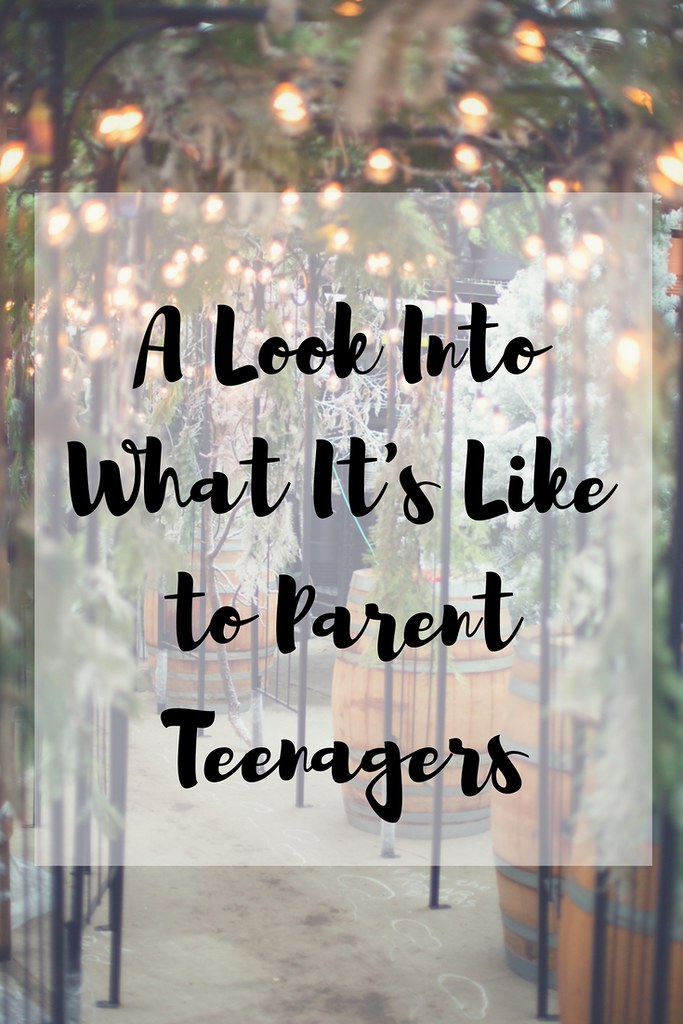What do you think the biggest misconceptions about teenagers are?
I think the biggest misconception about teenagers is that they are not contributing members of our society. Teens often get typecasted as children who are self absorbed and spend their free time drinking and being a pain in the butt. When in actual fact, they are legitimate members of our society who contribute to it, and teenagers are among the most passionate forward thinkers when it comes to how we do business. They think critically all the time, and are behind some of our best solutions when it comes to social change, technology, cleaning up ocean pollution, and how to spend the best summer vacation possible. In my (admittedly limited) experience parenting teenagers, my kids contribute to our family, their schools, sports teams, and our society in many positive ways. In between arguing with me and sleeping in and wrestling each other, that is.
What would be one piece of advice that you would offer in connecting with or understanding your teenager?
I have personally taken to heart the proverb “listen to them when they tell you the small things, and when they’re older they will tell you the big things. Because to them, it was always big things.”
The best way I’ve found to connect with or understand my teenagers is to listen when they talk. Like anyone, I try and ask about their day or about events that happen but I generally get the monotone “it was good” and zero follow up detail. They aren’t always ready to talk when I ask. But if I pick up on when they are ready, and listen then? That is when we connect and I get a window into understanding them.
I try hard to listen with interest to descriptions of tech class, the latest video game release, and the intricacies of sports theory: and every once in awhile I get a tidbit about a beloved sport or a good friend or a dream or opinion buried in there. It’s more important to me that my kids feel heard than that they tell me specific things. Feeling heard or seen in a large family can be a challenge but I am a firm believer in following your teenager’s lead. If they’re talking, listen. No matter if you’re making dinner, driving, trying to discipline a younger sibling, or hoping to catch up on your To Do list; if they’re talking, give them your full attention. Use active listening techniques, and try and remember details about the things they love best. But don’t fake it. Teenagers can detect hypocrisy and inauthenticity from quite a distance, and they don’t appreciate fake. This means that although I try and remember details from our previous talks, if I don’t remember, I ask again.
Hint; I often find my boys talk to me best in the van as we drive home from sports practice.
Another tip that helps me stay connected to them is to respect their intelligence. They’re not always right, nor are they 100% rational, but they are right and rational often enough to deserve my respect and to deserve a voice in what happens to them. My kids choose their own hair styles, clothes, extracurricular sports, high school electives, and summer activities, and they have a voice in how much screen time they get, where we vacation as a family, what we eat for dinner, and house rules. When we disagree (mostly about screen time), we are still the parents and what we say goes, but we try and acknowledge their point of view and explain the reasons behind our rules. We also try and allow flexibility whenever we can. This respects who they are as people, and their growing intelligence.
What is the most surprising thing you've learned about parenting in this stage?
The most surprising thing about parenting at this stage as been how easy it is. Everyone is different, so I don’t expect every teenager nor every parent of teens to describe parenting this stage as easy, but so far it’s a lot less work than parenting babies, toddlers, or young school aged kids. Also, I expect it might get hard again when the boys are older teens; so far we haven’t encountered a lot of rebellion or dangerous choices but that could change in the next few years. The constant negotiating isn’t easy, but the manual labour part of parenting is reduced in this stage, and I’ve found it surprising how easy it is to simply provide food and shelter and a listening ear and guidance when needed and that they stay alive without me constantly having to ensure it like when they were younger. Little ones are always trying to drown or run into traffic or electrocute themselves. Teenagers do this less constantly, in my experience.
I'm terrified of addiction and social media when I think about my kids. What do you see as the biggest concerns when raising teenagers?
Oh man. Parenting teenagers is fraught with worry. Although they are less constantly trying to drown or electrocute themselves like when they were littler, we now have to contend with easy access to free internet pornography, the possibility of being victimized by bullies, sexual predators, or harrassors, and the possibility of drug or alcohol abuse. Because of my job, I worry the most about my teenagers being hit by a car while walking around the city, and overdosing on drugs, because these are the things I see the most often as causing major injury. But I know that bullying and harassment, sexual abuse, overexposure to pornography, and mental health are also factors that can significantly impact teenagers’ lives and well being and I feel minimally equipped to help them cope with these or recognize when they are happening. The worrying never ends.
What is your favourite part of parenting teens?
My favourite part of parenting teenagers is their level of autonomy. They can feed themselves, bathe themselves, help out around the house, get themselves to school or around town on the bus, and manage their own schedules. They are good company and constantly make me laugh. My oldest son is almost 15 and his favourite way to drive me insane is to find terrible YouTube videos of kids playing the Frozen soundtrack on the recorder, and force me to listen. He has a bus pass and takes the city bus to high school, karate, and friends’ houses. Both my oldest boys can babysit, make dinner, and get to and from school and extracurricular activities on their own if necessary. They are also good friends to each other, which I find is one of my favourite things.
*********************************************************************************
A big thanks to Melissa for sharing her experience in parenting–isn't she a great writer?
What kind of teenager were you? Are you nervous about that stage?
Love,
Louise
Melissa is a self professed kid wrangler, medical enthusiast, and artist. She lives in Victoria BC with her husband and their four kids, aged 14, 13, 9, and 6. Melissa is a paramedic and loves human biology and the art of prehospital medicine. She also enjoys painting, creative writing, and fibre arts in her admittedly limited spare time. She is an avid lover of the outdoors and is always up for a day of hiking, camping, snowboarding, exploring a forest or sunbathing at the beach.
.jpg)


No comments:
Post a Comment